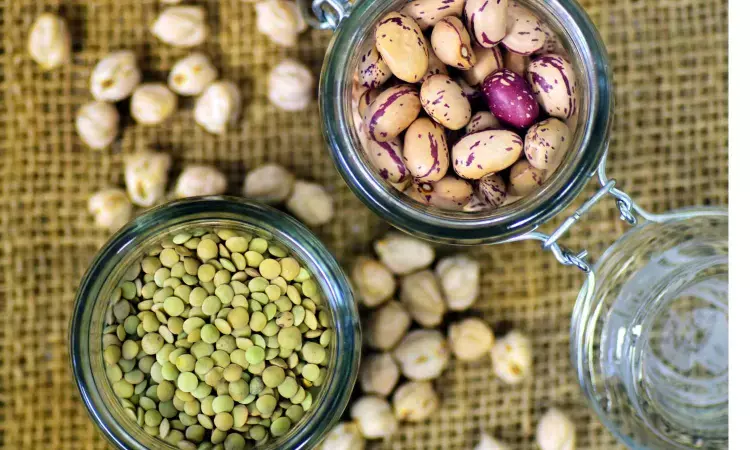- Home
- Medical news & Guidelines
- Anesthesiology
- Cardiology and CTVS
- Critical Care
- Dentistry
- Dermatology
- Diabetes and Endocrinology
- ENT
- Gastroenterology
- Medicine
- Nephrology
- Neurology
- Obstretics-Gynaecology
- Oncology
- Ophthalmology
- Orthopaedics
- Pediatrics-Neonatology
- Psychiatry
- Pulmonology
- Radiology
- Surgery
- Urology
- Laboratory Medicine
- Diet
- Nursing
- Paramedical
- Physiotherapy
- Health news
- Fact Check
- Bone Health Fact Check
- Brain Health Fact Check
- Cancer Related Fact Check
- Child Care Fact Check
- Dental and oral health fact check
- Diabetes and metabolic health fact check
- Diet and Nutrition Fact Check
- Eye and ENT Care Fact Check
- Fitness fact check
- Gut health fact check
- Heart health fact check
- Kidney health fact check
- Medical education fact check
- Men's health fact check
- Respiratory fact check
- Skin and hair care fact check
- Vaccine and Immunization fact check
- Women's health fact check
- AYUSH
- State News
- Andaman and Nicobar Islands
- Andhra Pradesh
- Arunachal Pradesh
- Assam
- Bihar
- Chandigarh
- Chattisgarh
- Dadra and Nagar Haveli
- Daman and Diu
- Delhi
- Goa
- Gujarat
- Haryana
- Himachal Pradesh
- Jammu & Kashmir
- Jharkhand
- Karnataka
- Kerala
- Ladakh
- Lakshadweep
- Madhya Pradesh
- Maharashtra
- Manipur
- Meghalaya
- Mizoram
- Nagaland
- Odisha
- Puducherry
- Punjab
- Rajasthan
- Sikkim
- Tamil Nadu
- Telangana
- Tripura
- Uttar Pradesh
- Uttrakhand
- West Bengal
- Medical Education
- Industry
Legume Consumption not significantly linked to improvement of CVD And Diabetes Risk In Healthy Adults

Consuming legumes, such as beans, lentils, peas, and soybeans, may not have a significant impact on the risk of cardiovascular disease (CVD) and type 2 diabetes (T2D) in healthy adults with low legume consumption, according to a recent systematic review. The study published in Food & Nutrition Research aimed to evaluate the associations between legume consumption and CVD, T2D, and their risk factors in this population.
Researchers Birna Thorisdottir and team conducted a comprehensive search of several databases for randomized controlled trials (RCTs) and prospective cohort studies with follow-ups of at least 12 months. They analyzed the data from 31 cohort studies involving over 2 million participants and 14 crossover RCTs with 448 participants. The outcomes examined included CVD, coronary heart disease (CHD), stroke, T2D, and various blood lipids, glycemic markers, and blood pressure changes.
● Out of the 181 articles reviewed, 47 were selected for analysis in this study.
● These included 31 cohort studies involving a total of 2,081,432 participants with generally low legume consumption, 14 crossover randomized controlled trials (RCTs) with 448 participants, one parallel RCT, and one non-randomized trial.
● The meta-analyses of the cohort studies indicated no significant associations between legume consumption and cardiovascular disease (CVD), coronary heart disease (CHD), stroke, or type 2 diabetes (T2D).
● On the other hand, the meta-analyses of the RCTs suggested a potential protective effect of legume consumption on certain risk factors.
● These included reductions in total cholesterol (mean difference of -0.22 mmol/L), low-density lipoprotein (LDL)-cholesterol (-0.19 mmol/L), fasting glucose levels (-0.19 mmol/L), and homeostatic model assessment for insulin resistance (HOMA-IR) (-0.30).
● There was considerable heterogeneity among the RCT results, with an I2 value of 52% for LDL-cholesterol and over 75% for the other outcomes.
● Overall, the evidence regarding the associations between legume consumption and the risk of CVD and T2D was considered limited, and no definitive conclusion could be drawn from the available data.
In summary, while legume consumption may not directly affect the risk of CVD and T2D in healthy adults with low legume intake, the study suggests that including legumes as part of a varied and nutritious diet could contribute to improved risk factors associated with these conditions. Future studies are warranted to further explore the potential benefits of legume consumption in preventing CVD and T2D.
Reference:
Thorisdottir, B., Arnesen, E. K., Bärebring, L., Dierkes, J., Lamberg-Allardt, C., Ramel, A., Nwaru, B. I., Söderlund, F., & Åkesson, A. (2023). Legume consumption in adults and risk of cardiovascular disease and type 2 diabetes: a systematic review and meta-analysis. Food & Nutrition Research, 67. https://doi.org/10.29219/fnr.v67.9541
Dr Kamal Kant Kohli-MBBS, DTCD- a chest specialist with more than 30 years of practice and a flair for writing clinical articles, Dr Kamal Kant Kohli joined Medical Dialogues as a Chief Editor of Medical News. Besides writing articles, as an editor, he proofreads and verifies all the medical content published on Medical Dialogues including those coming from journals, studies,medical conferences,guidelines etc. Email: drkohli@medicaldialogues.in. Contact no. 011-43720751


